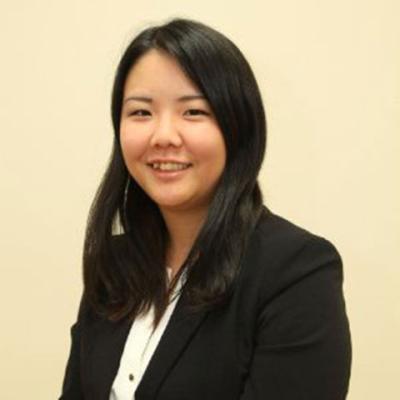
Master of Arts in Translation and Interpreting
Overview
Qualify as a professional Chinese-English or Japanese-English translator and interpreter with the Master of Arts in Translation and Interpreting.
This 2-year program offers industry-focused training in community translation and interpreting as well as advanced training for in-demand translation and interpreting specialisations in health and legal.
You'll acquire essential applied skills in computer-assisted translation (CAT) tools, post-editing for machine translation, digital terminology management, and bidule and relay interpreting. You'll also be prepared for advanced simultaneous interpreting for international business and conference settings.
Emphasis will be placed on the harnessing of digital technological trends in both translation and interpreting, thereby equipping graduates with the skills to work in an increasingly globalised and digitalised translation and interpreting market.
NAATI certification
The program is endorsed by National Accreditation Authority for Translators and Interpreters (NAATI).
Program highlights
- Choose to specialise in Japanese or Chinese translation and interpreting.
- Learn in our world-class Televic interpreting facility. Televic is used in major international organisations such as the United Nations.
Fields of study
Tailor your studies to suit your goals. This program offers these options:
- Chinese
- Japanese
How you'll learn
Your learning experiences are designed to best suit the learning outcomes of the courses you choose.
- Lectures
- Tutorials
- Work placements
- Online study
- Research experience
- Peer-assisted study sessions
- Workshops
What you'll study
At UQ, degrees are called 'programs' and subjects are called 'courses'. Here's a sample of the courses you could study in this program:
- Theoretical Studies in Translation and Interpreting
- Translation in a Globalised Marketplace
- Translating with Digital Tools
- Consecutive Interpreting
Career possibilities
Postgraduate study can take you anywhere. Depending on which field you choose, here are some of the careers you could be on your way to:
- In-house translator/interpreter
- Freelance translator/interpreter
- Conference interpreter
- Legal translator/interpreter
- Medical translator/interpreter
- Diplomat
- International business translator/interpreter
- English teacher
- Translation and interpreting instructor
- Researcher
Next steps after graduation
As a graduate you’ll be eligible to apply to sit relevant NAATI Certificates test without satisfying any other prerequisites.
Events
See all events
29 June
Voyages to the Underworld: UQ Centre for Western Civilisation Winter School
Stories
See all stories
UQ people
Dylan's PhD story: breathing new life into a living Indigenous language
4-minute read

UQ people
Meet the CEO championing neurodiversity in the workplace
4-minute read

Careers
Emerging careers in the arts and communication industries
5-minute read
Stories
See all stories
UQ people
Dylan's PhD story: breathing new life into a living Indigenous language
4-minute read

UQ people
Meet the CEO championing neurodiversity in the workplace
4-minute read

Careers
Emerging careers in the arts and communication industries
5-minute read
Entry requirements
Entry requirements
To be eligible for entry, you'll need:
- a bachelor's degree (or equivalent) in any discipline, with a GPA of 4.5, or
- the Graduate Certificate in Arts in Interpreting from UQ, with a GPA of 4.0, or
- the Graduate Certificate in Arts in Translation from UQ, with a GPA of 4.0, and
- proficiency in spoken and written Chinese and English for the Chinese field of study, or
- proficiency in spoken and written Japanese and English for the Japanese field of study, or
- to have successfully completed 3 years of study towards an approved qualification at an overseas partner institution, with a formal pathway to the Master of Arts in Translation and Interpreting (2-years duration).
The listed grade point averages (GPA) are on a 7-point scale.
If required, you must have completed an aptitude test to the standard set by the Executive Dean. The aptitude test is not required for native speakers of the language of study (Chinese-Mandarin or Japanese) who reside in a country where the language is spoken (i.e. Mainland China, Taiwan or Japan). The aptitude test may be required for all other applicants, including domestic students. Further information about the aptitude test can be found on the School of Languages and Cultures website.
- a bachelor's degree (or equivalent) in any discipline, with a GPA of 4.5, or
- the Graduate Certificate in Arts in Interpreting from UQ, with a GPA of 4.0, or
- the Graduate Certificate in Arts in Translation from UQ, with a GPA of 4.0, and
- proficiency in spoken and written Chinese and English for the Chinese field of study, or
- proficiency in spoken and written Japanese and English for the Japanese field of study, or
- to have successfully completed 3 years of study towards an approved qualification at an overseas partner institution, with a formal pathway to the Master of Arts in Translation and Interpreting (2-years duration).
The listed grade point averages (GPA) are on a 7-point scale.
If required, you must have completed an aptitude test to the standard set by the Executive Dean. The aptitude test is not required for native speakers of the language of study (Chinese-Mandarin or Japanese) who reside in a country where the language is spoken (i.e. Mainland China, Taiwan or Japan). The aptitude test may be required for all other applicants, including domestic students. Further information about the aptitude test can be found on the School of Languages and Cultures website.
English language requirements
IELTS overall 6.5; reading 6; writing 6; speaking 6; listening 6. For other English Language Proficiency Tests and Scores approved for UQ
TOEFL iBT (including Paper Edition) - Overall 87, listening 19, reading 19, writing 21 and speaking 19.
PTE Academic - Overall Score of 64 and 60 in all sub bands.
BE - A minimum overall grade of 4 plus a minimum grade of C in all macro skills.
CES - Overall 176 and 169 in all sub bands.
OET is not accepted.
There are other ways to meet the English language requirements. For some programs, additional conditions apply.
Student visas
International students who are accepted into full-time study in the Master of Arts in Translation and Interpreting are eligible to apply for an Australian student visa (subclass 500).
There are a number of requirements you must satisfy before a visa is granted, including the Genuine Student (GS) requirement.
Need help meeting the entry requirements?
Fields of study
Fields of study
Tailor your studies to suit your goals. This program offers these options:
Fields of study
Tailor your studies to suit your goals. This program offers these options:
Fees and Scholarships
Indicative annual fee
Approximate yearly cost of tuition (16 units). Your fees will vary according to your selected courses and study load. Fees are reviewed each year and may increase.
$4,740
2026
Approximate yearly cost of full-time tuition (16 units). Your fees will vary according to your study load. Fees are reviewed each year and may increase.
AUD $45,792
2026
Government assistance
Financial aid
As an international student, you might be eligible for financial aid – either from your home country, or from the Australian Government.
HECS-HELP
Domestic places in the Master of Arts in Translation and Interpreting are Commonwealth supported, as long as you meet all Commonwealth supported place eligibility requirements.
This means the cost of your education is shared between you and the Australian Government. Instead of tuition fees, Commonwealth supported students pay what are called student contribution amounts.
If you have a Commonwealth supported place, you may also be eligible for HECS-HELP. This is an Australian Government loan scheme to assist eligible students with the cost of their student contribution amounts.
Centrelink support
The Australian Government has approved this master's program for income support payments to be made to eligible students.
Scholarships
You may be eligible for more than 100 scholarships, including:
How to apply
Applying online
All international applications should be submitted to UQ. If you prefer, you can use an approved UQ agent near you.
The program code for the Master of Arts in Translation and Interpreting is 5752.
Applying online
All domestic applications should be submitted to UQ.
The program code for the Master of Arts in Translation and Interpreting is 5752.
Important dates
The closing date for this program is:
- To commence study in Semester 2 - June 30 of the year of commencement.
Visa processing times vary. Apply and accept your offer as early as you can.
To learn more about UQ dates, including semester start dates, view the Academic Calendar.
Important dates
The closing date for this program is:
- To commence study in Semester 2 - June 30 of the year of commencement.
To learn more about UQ dates, including semester start dates, view the Academic Calendar.
Aboriginal and Torres Strait Islander applicants
For support with applying – or if you have any questions about university life – get in touch with our Aboriginal and Torres Strait Islander Studies (ATSIS) Unit.
Explore other programs
Express yourself. And your interest.
They say choosing a degree is hard, which is why we've made it easy. Register your interest and we'll send you everything you need to know about applying to UQ.






